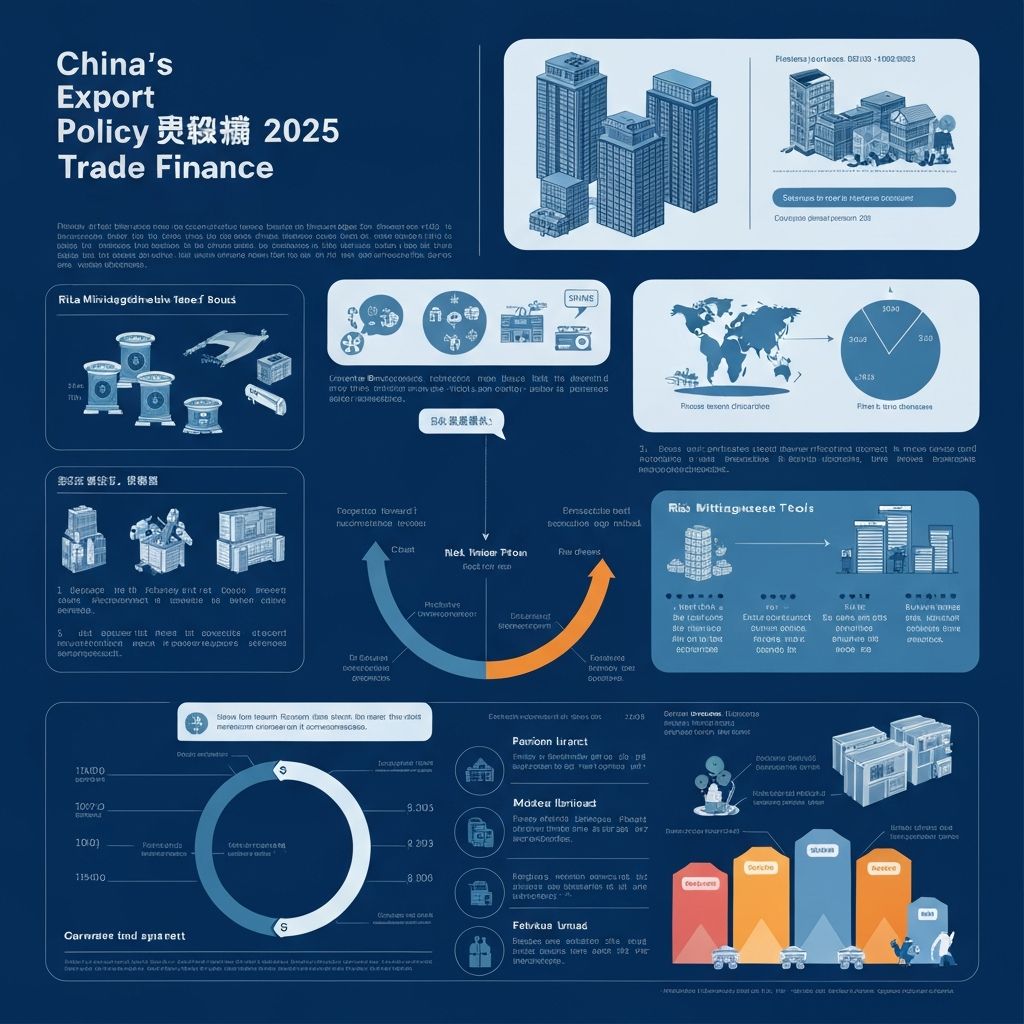Chinese Government Prioritizes Export Credit Insurance Expansion for 2025-2026

Chinese state-level guidelines for 2025-2026 emphasize strengthening export credit insurance as a key mechanism to stabilize foreign trade. This policy direction signals continued institutional support for Sinosure and other export credit insurers, creating favorable conditions for Canadian importers seeking extended payment terms from Chinese suppliers.
Policy Background and Context
Export credit insurance has been a strategic priority for the Chinese government since the early 2000s, when Sinosure was established as a state-owned policy bank. The insurance mechanism serves multiple objectives: supporting Chinese exporters, facilitating international trade relationships, and managing country-level credit risk.
The 2025-2026 guidelines reinforce this commitment with specific directives to expand coverage, streamline approval processes, and increase support for small and medium-sized exporters. These policy priorities translate directly into operational changes at Sinosure and other insurers.
Key Policy Directives
- 1.Expand Coverage Capacity: Increase total insured trade volume by supporting more exporters and approving higher credit limits for qualified buyers.
- 2.Streamline Processes: Reduce approval timelines for buyer registration and credit limit applications through digital infrastructure improvements.
- 3.Support SME Exporters: Provide preferential terms and simplified requirements for small and medium-sized manufacturers seeking export insurance.
- 4.Prioritize Key Markets: Focus on trade relationships with major economies, including North America, Europe, and emerging markets.
Why Export Credit Insurance Matters for Trade Stability
From the Chinese government's perspective, export credit insurance serves as a stabilizing mechanism for foreign trade. When suppliers can offer extended payment terms with insurance backing, they become more competitive in international markets. This competitiveness translates to sustained export volumes and economic growth.
For Canadian importers, this policy priority creates a favorable environment. The government's commitment to expanding export credit insurance means more suppliers will have access to coverage, and existing programs will become more efficient and buyer-friendly.
Impact on Supplier Behavior
Shift from Deposits to Net Terms
Historically, many Chinese suppliers demanded 30-50% upfront deposits to manage cash flow and mitigate payment risk. With government-backed export credit insurance expansion, more factories are shifting to insured net terms (90-120 days) instead of requiring deposits.
Competitive Differentiation
Suppliers increasingly market their ability to offer insured payment terms as a competitive advantage. This shift benefits Canadian importers, who can negotiate better terms and choose from more suppliers willing to extend credit.
Long-Term Relationship Focus
With insurance backing, suppliers can take a longer-term view of buyer relationships. They're more willing to invest in custom tooling, flexible MOQs, and other buyer-friendly terms when payment risk is mitigated.
Practical Implications for Canada-China Trade
The policy emphasis on export credit insurance expansion aligns well with Canada-China trade dynamics. Canadian importers are generally viewed as creditworthy buyers, and the bilateral trade relationship is well-established. This makes Canadian businesses attractive candidates for Sinosure registration and credit approval.
As Chinese suppliers gain easier access to export insurance, Canadian importers have more leverage to negotiate extended payment terms. The shift from "buyer must pay upfront" to "supplier offers insured terms" fundamentally changes the negotiating dynamic in favor of importers.
Timeline and Implementation
The 2025-2026 policy guidelines are already being implemented through operational changes at Sinosure and other insurers. Canadian importers can expect to see:
- •Faster approval timelines for Buyer ID registration (typically 7-14 days)
- •More suppliers proactively offering insured payment terms
- •Higher approved credit limits for qualified buyers
- •Simplified documentation requirements for repeat buyers
Why This Matters for Canadian Importers
Government Backing: The Chinese government's policy commitment to export credit insurance provides institutional stability and long-term reliability. Canadian importers can build supply chain strategies around insured payment terms with confidence.
Supplier Willingness: As more suppliers gain access to government-supported insurance, they become more willing to offer extended payment terms. This shifts negotiating power toward buyers and creates more competitive supplier options.
Reduced Upfront Costs: The policy emphasis on net terms over deposits means Canadian importers can reduce upfront cash requirements. This frees up working capital for inventory expansion, marketing, and business growth.
Competitive Advantage: Importers who secure Sinosure registration now position themselves to benefit from the policy expansion. Early adopters gain access to more suppliers and better terms as the program scales.
Taking Action
To benefit from China's export credit insurance expansion, Canadian importers should complete Buyer ID registration as soon as possible. The registration process involves submitting business documentation and financial statements for credit review.
Once approved, your Buyer ID and credit limit can be used with any Sinosure-enrolled Chinese supplier. The registration is valid across multiple suppliers and shipments, providing ongoing access to 90-120 day payment terms.